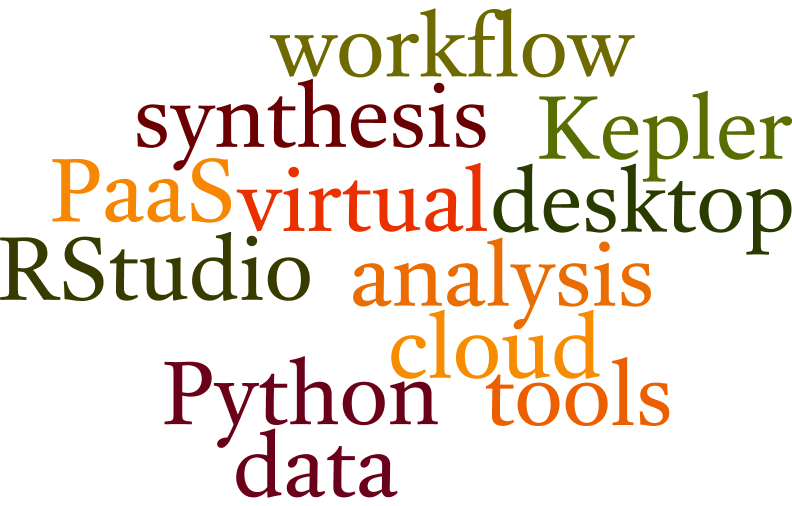 A host of new features have been introduced to TERN’s CoESRA Virtual Desktop, including more tools, Google ID logins and an improved system for group data sharing.
A host of new features have been introduced to TERN’s CoESRA Virtual Desktop, including more tools, Google ID logins and an improved system for group data sharing.
RCC has worked with UQ-based TERN to further develop CoESRA since its launch in July 2015. This includes embedding CoESRA as a tool as part of ecocloud, launched last October for the ecoscience community for exploring and analysing spatial biological and environmental data in NCRIS-funded platforms.
RCC has worked with TERN to introduce new features on CoESRA, including:
- users being able to login with their Google ID
- options to use CentOS and Ubuntu OS on desktops with customised desktop configuration
- more tools added, such as Biodiverse, a desktop tool for diversity spatial analysis, and MacroecoDesktop, a desktop tool to analyse empirical patterns in ecology data
- users being able to create their own collaborative groups to engage in sharing data and analysis pipelines.
The TERN CoESRA virtual desktop provides researchers with a free, Web-accessible computational desktop environment to create, run experiments and share work involving data sets that are too big for personal computers.
It provides popular tools like RStudio, Canopy, Kepler Scientific Workflow, KNIME, QGIS, Panoply and OpenRefine to enable users to create, execute and share data analysis and synthesis pipelines, scripts and algorithms.
CoESRA aims to provide easy access to the execution environment and resources to build, execute and share repeatable analysis pipelines including scientific workflows — all without having to download any software or set up an environment.
CoESRA enables users to share infrastructure, data and analysis via the cloud, which drastically reduces, or removes costs for others to setup an environment and rerun the experiment.
CoESRA can be used independently or via ecocloud. It has also been adopted to use in the Marine Science Cloud as the virtual desktop computing environment.
The ‘how-to’ guide for the system is available on the CoESRA website. Currently, there are more than 200 registered users across the globe.
CoESRA has been collaboratively developed with RCC and other partners. It is partly funded through the Data Enhanced Virtual lab (DeVL) program administered through Australian Research Data Commons (ARDC) and the Australian Government’s National Collaborative Research Infrastructure Strategy (NCRIS) program.
For more information about the CoESRA project, please contact TERN’s Dr Siddeswara Guru.
Read CoESRA case studies here.



